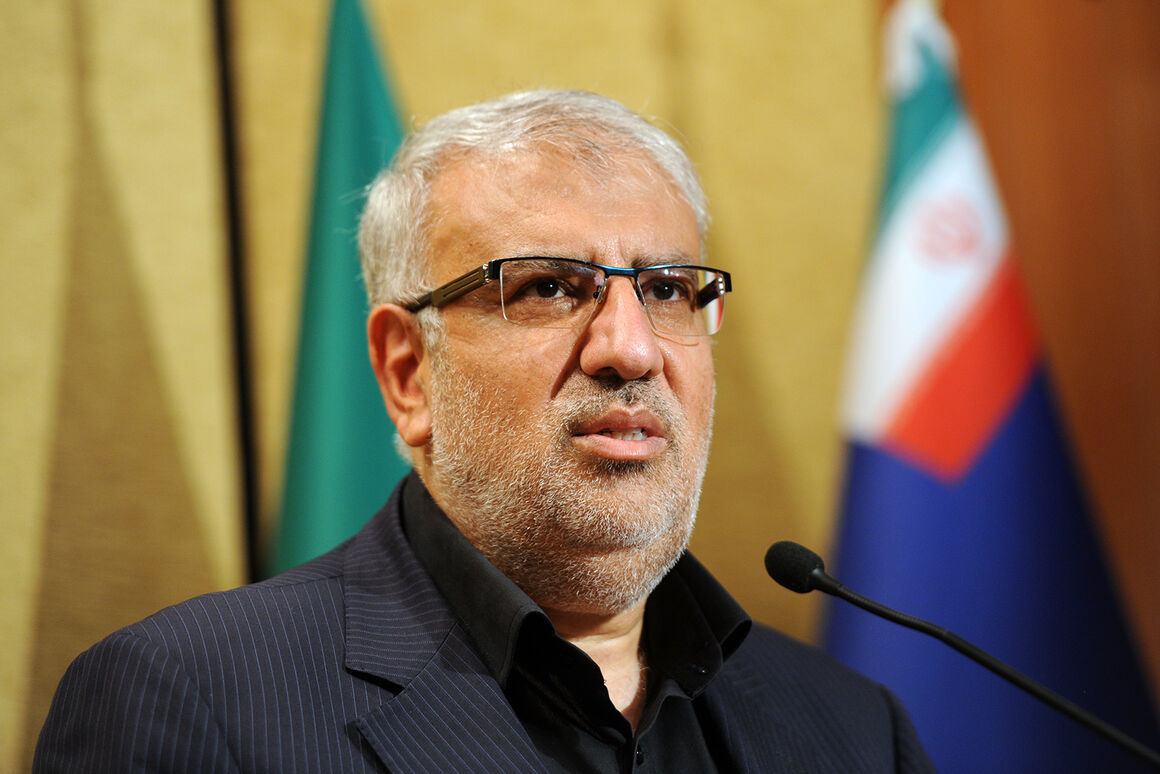Speaking in an interview with Radio Eghtesad on Wednesday evening (September 15th) about the 13th administration’s plan to develop refining industries and build petroleum refineries, Mr. Owji said: "Considering the current production capacity of petroleum products in the country's oil refineries, increasing refining capacity is a must.”
He said: “We have two plans in this regard; the first plan is to boost the capacity of existing refineries (both those fed by crude oil and those fed by gas condensate) in terms of quality and quantity of products; the second plan is to build new refineries or petroleum refineries."
The Minister of Petroleum stated: "Fortunately, there is a good legal mechanism with regard to supporting downstream oil industries…, and a permit that is given in line with guaranteed feedstock supply can be a good incentive for investors and, God willing, with the support of the 13th administration and the Iranian Ministry of Petroleum, we will undoubtedly increase refining capacity within the next three to four years, as is the case with the Economy of Resilience and the prevention of crude sales.”
Owji said that petroleum products have a very good market and fewer problems in the field of sanctions, adding: "According to the demand of neighboring countries and the region, whatever invested in this field has a favorable exchange rate, will create jobs and prevent crude sales."
Iran's refining capacity to increase 1.5 times
Announcing that contracts have been signed with eight capable investors in this field for refining about 1.5 to 1.6 mbd, he said: “We expect 1.5 times increase in refining capacity in 3 to 4 years from currently 2.2 mbd to 3.4 or 3.5 mbd.”
In response to a question about whether it is possible for the country to wean its economy off oil exports, he said: “The Islamic Republic of Iran has a good capacity in oil reservoirs and we have more than 150 billion barrels of extractable oil.”
"Fortunately, with God-given reserves in the field of oil fields, where 154 billion barrels of crude oil and 33,000 billion cubic meters (33 trillion cubic meters) of gas reserves can be extracted," Owji said, adding that any increase in refining capacity is accompanied by an increase in oil production. “As production capacity increases in the upstream sector, refining capacity also increases in the downstream sector, and at the same time we will have the power to export more oil.”
Asked if there were any plans to build a new refinery such as Persian Gulf Star Refinery, he said: "This increase in refining capacity is seen in the size of the Persian Gulf Star refinery and the goal is to neutralize the sanctions, of course."
Strengthening energy diplomacy and boosting Iran's share in world gas trade
Asked about the Ministry of Petroleum's plans to swap gas and decentralize gas resources, Owji said: "Iran has the world's second largest gas reserves with 33,000 billion cubic meters of extractable gas, but unfortunately our share of gas trade in the region and the world is less than 2%.”
Emphasizing that in the gas industry, not only the issue of exports should be discussed, but also imports, swap and transit sectors can generate different revenues, he added: “Russia, enjoying the largest gas reserves in the world, imports, swaps and transits gas along with exports; therefore, one of our plans on the agenda is to discuss strong energy diplomacy, especially in the gas sector, given the favorable capacities in the markets of countries in the region, including Qatar and Turkmenistan.”
The Minister of Petroleum, considering the power and capacity of extraction from gas fields and the convenient geographical location of Iran, considered increasing the share in the field of gas trade as one of the important goals of the 13th administration in the Ministry of Petroleum.
Petchem Exports to his $4.8 billion
Owji said: "We can build chemical parks in most areas, even low-income areas; we have more than 65 petrochemical complexes in the country, which according to the optimal capacity of these complexes, there is a capacity of 40 million tons of petrochemical products, and we predict that Iran’s petrochemical export revenue will exceed $4.8 billion this year.”


Your Comment